Rye Gang-B, Week-2
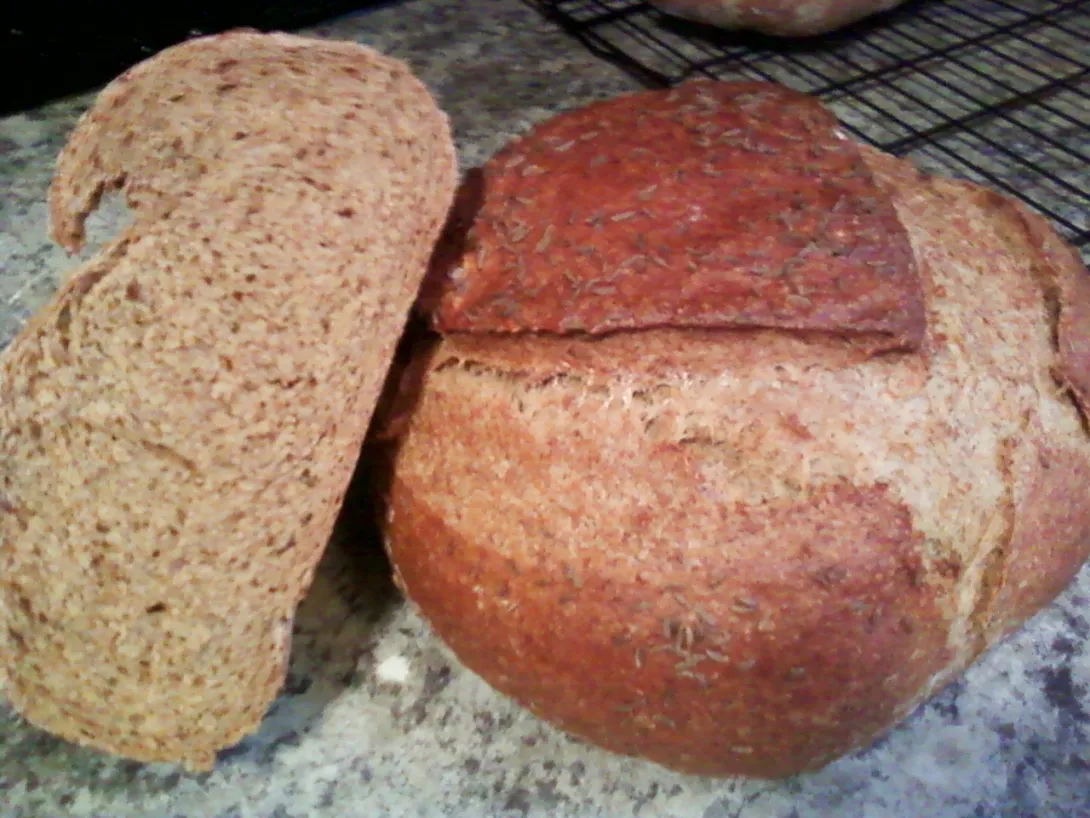
Here is my first bake of week two recipes, Milwaukee Rye. Very good bread. Nice soft crumb and a chewy crust.
- Log in or register to post comments
- 6 comments
- View post
- MANNA's Blog

Here is my first bake of week two recipes, Milwaukee Rye. Very good bread. Nice soft crumb and a chewy crust.
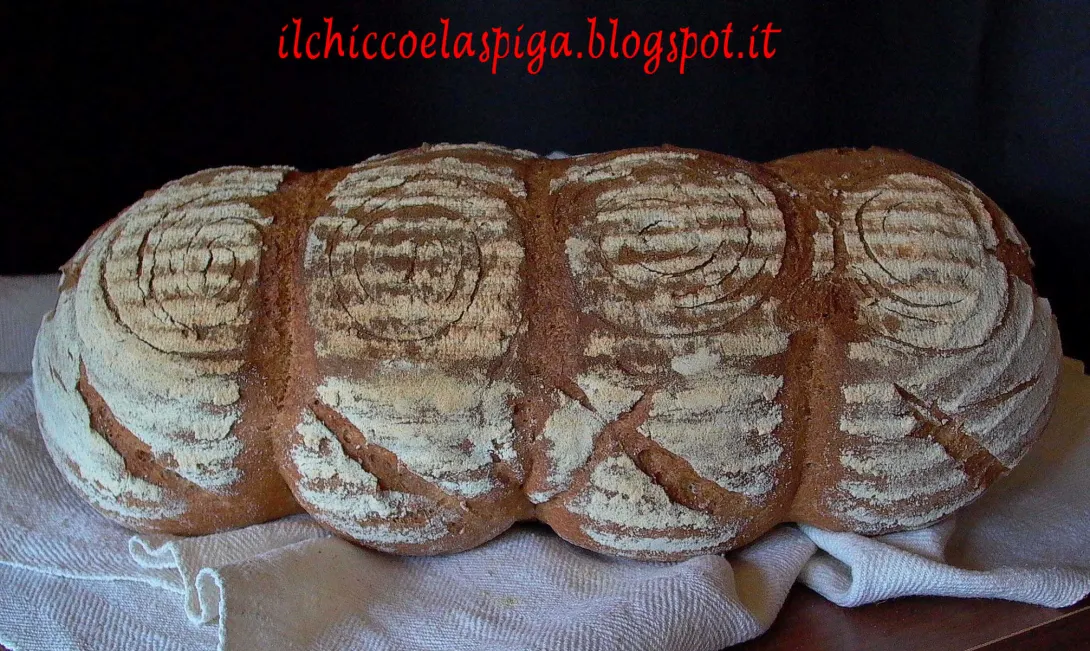
Auguro un buon fine settimana a tutti e vi lascio l'immagine di una mia produzione.
E un pane con Farina di Farro (tipo Triticum Dicoccum) che eseguo molto spesso per lo straordinario gusto che ne consegue.
Sarei lieta di conoscere le vostre opinioni in merito.
http://ilchiccoelaspiga.blogspot.it/2014/11/il-farro-per-un-buon-pane.html
Un affettuso saluto a tutti dalla Toscana.
Anna
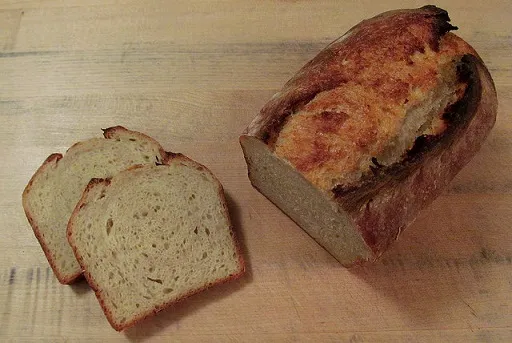
I made 2 different sandwich loaves and used the no knead method for both. My first loaf was mostly white flour and naturally leavened using discarded sourdough starter. Baker's Percentages: 90% APF, 10% WW, 90% water, 15% discarded SD starter, 2.1% salt. I got great oven spring with this loaf and it was nice and sour.
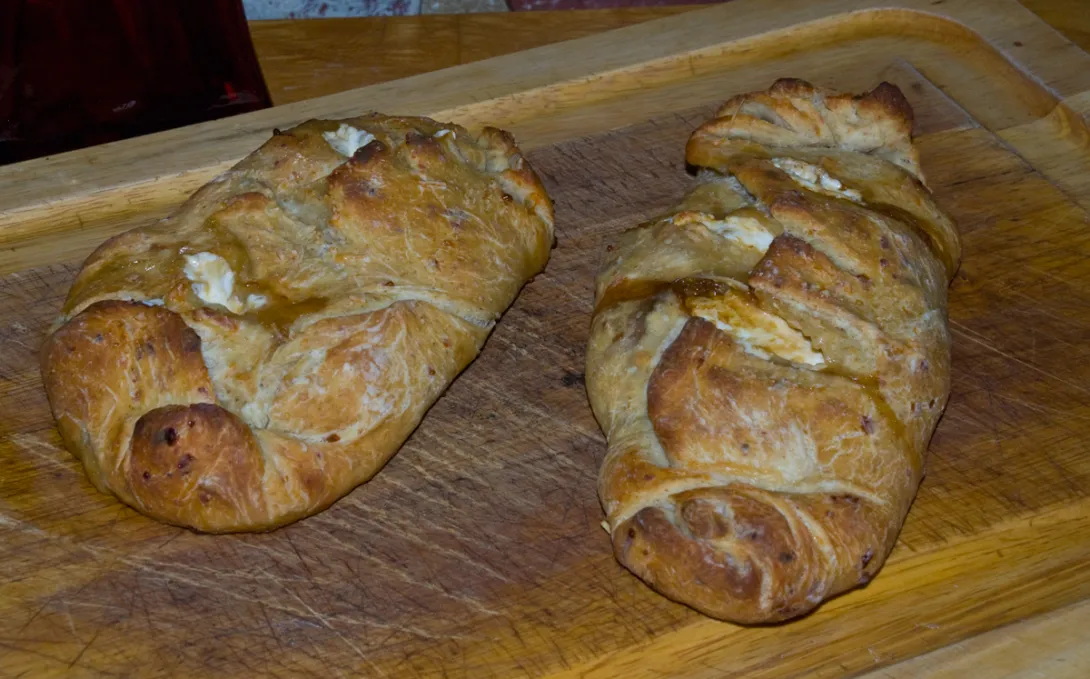
The other night for dinner I decided to use the left-over pizza dough I made last week and make some calzones. The pizza dough is similar to my normal one using mostly type 00 Caputo flour mixed with about 10% whole wheat. I ran out of Caputo so I actually used around 20% Caputo along with some AP flour, potato flour and whole wheat and I added some Asiago cheese just for the fun of it.
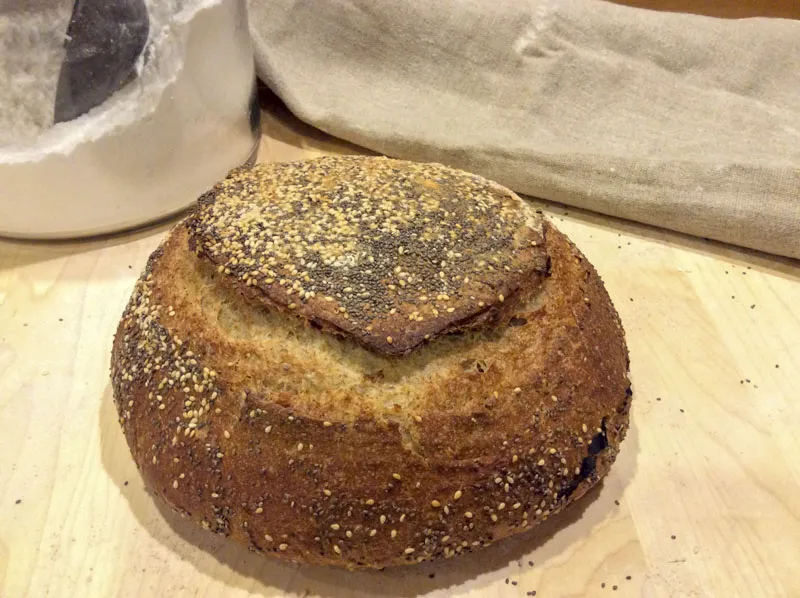
Nothing special about this loaf. It is what I bake about every other day. I did try a different score to see how it would look. This had about 20 hours of cold fermentation and ended up very tasty.
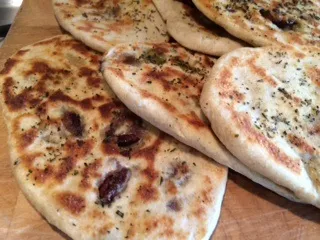
This is a fast and easy way to use some of your sourdough starter. I have made the flatbreads per this recipe most often, but used a cold proof for one batch. I recommend the immediate approach, but both work. I think Ziti would argue that flatbreads are better with yeast (and he is probably right), but this is a fun way to use up sourdough starter.
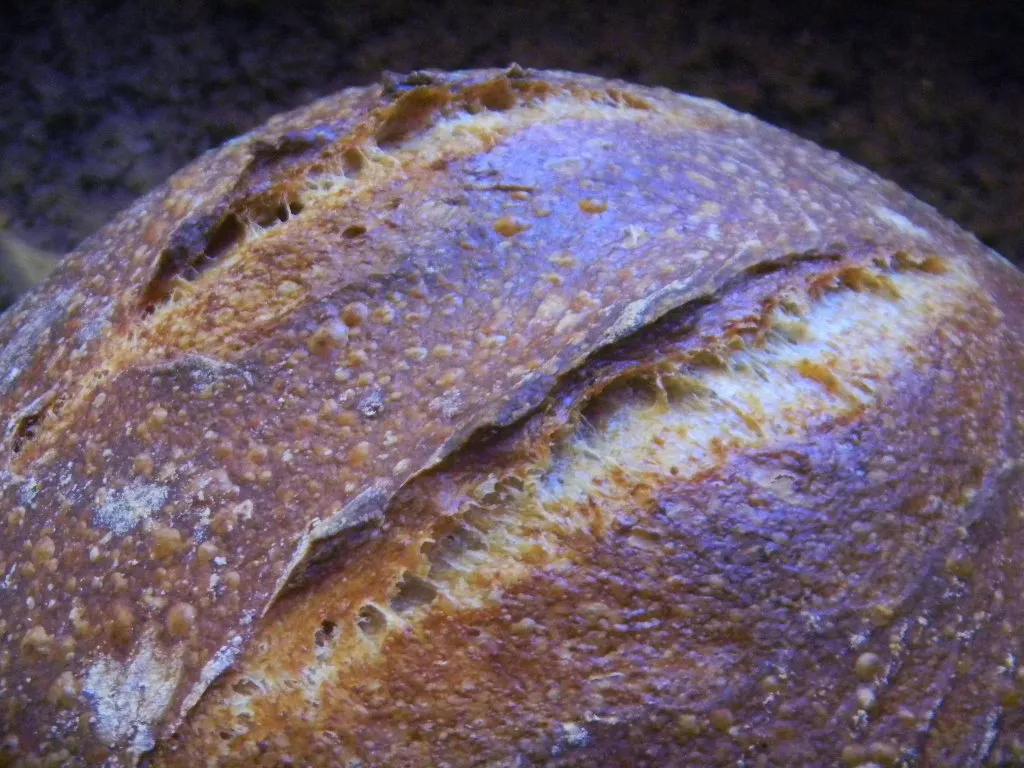
Lucy kept working on her sprouted grain experiments this week. These little chatted berries have turned out to be a different can of worms when it comes to how bread flours usually perform. This makes them fun to play with of a little frustrating at times..
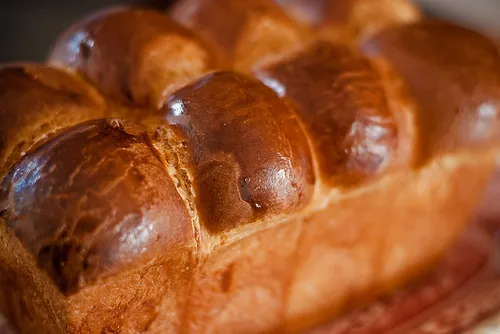
I've applied here instructions for a classic Brioche Nanterre. This specific brioche is baked in a loaf pan with 8 individual portions which are brilliant for setting at a tea service to be easily pulled apart. This loaf does break from convention in that it is egg washed twice. Once before rising and the second before going into the oven. This creates a richer and more luxurious color as well as shine. I also break up the ingredients list in to three sections consisting of;
Pre-Ferment (Poolish)
Main Dough
Egg Wash
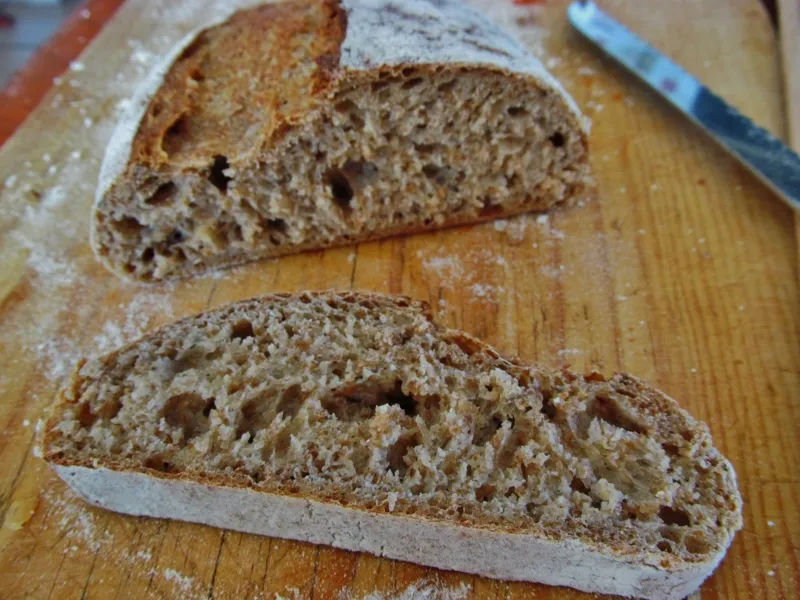
I've made a similar version of this spice bread before and its one of my favorites, but this time I decided to add more whole wheat flour plus some whole rye flour and I also experimented a bit with the method. I liked how it turned out in terms of flavor and texture, just not very sure if it should have risen more.
The recipe is something like this, it makes three medium loaves or batards:
Total flour: 705 gr.
Total water (hidration): 529 (75%)
Whole wheat flour: 352 gr. (50%)
Whole rye flour: 70 gr. (10%)
Bread flour: 283 (40%)